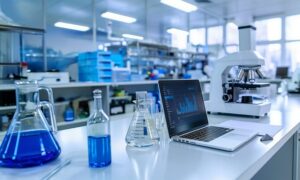Biotechnology, a rapidly advancing field at the intersection of science and technology, holds the promise of revolutionizing medicine, agriculture, and various industries. While the potential for groundbreaking innovations is immense, the ethical dilemmas associated with biotechnological advancements cannot be ignored. Striking a delicate balance between innovation and responsibility is crucial to ensure that the benefits of biotechnology are maximized while minimizing potential harms. In this comprehensive exploration, we delve deeper into the ethical challenges posed by biotechnology and emphasize the imperative for a thoughtful and responsible approach.
Genetic Engineering and Designer Babies
The prospect of genetic engineering has opened new frontiers in biotechnology, allowing scientists to manipulate genes and modify traits in organisms, including humans. While the potential benefits include the elimination of genetic diseases, the ethical concerns surrounding the concept of “designer babies” cannot be overstated. Delving into the realm of selecting specific traits such as intelligence, physical appearance, or personality raises profound ethical questions. Striking a balance between the potential benefits and ethical implications of creating genetically modified humans requires not only scientific precision but also robust ethical frameworks and public discourse.
CRISPR Technology: Editing the Human Genome
The advent of CRISPR-Cas9 technology has ushered in a new era of precision in gene editing. This breakthrough tool offers unprecedented potential for treating genetic disorders by precisely modifying the human genome. However, the ability to edit human genes raises profound ethical questions. Concerns about unintended consequences, such as off-target mutations and the ethical ramifications of “enhancing” human traits, necessitate a careful examination of the ethical boundaries surrounding gene editing in humans. As scientists explore the vast possibilities of CRISPR, ethical guidelines and international collaboration are essential to navigate this uncharted territory responsibly.
Biohacking and DIY Biology
The democratization of biotechnology tools through the rise of biohacking and DIY biology communities has accelerated innovation. While this accessibility fosters creativity and inclusivity, it also raises concerns about the lack of oversight and potential risks associated with amateur biologists experimenting with genetic materials. The line between innovation and responsible use becomes blurred, emphasizing the need for clear ethical guidelines and regulatory frameworks. Striking a balance between encouraging innovation and ensuring responsible experimentation is crucial to prevent unintended consequences and mitigate potential biosecurity risks.
Biotechnology and Agriculture: GMOs and Environmental Impact
The use of genetically modified organisms (GMOs) in agriculture has been a subject of intense debate. While GMOs offer the potential to increase crop yields and enhance resistance to pests, concerns about their environmental impact, cross-breeding with wild species, and potential long-term effects on ecosystems must be addressed. The ethical considerations in biotechnology extend beyond human applications, demanding a holistic approach that includes environmental sustainability. Engaging stakeholders, from scientists to farmers and consumers, in a dialogue about the ethical implications of agricultural biotechnology is essential to forge a path forward that balances innovation with environmental responsibility.
Patenting Life Forms
The issue of patenting genetically modified organisms and life forms introduces ethical challenges related to ownership and access to genetic resources. Striking a balance between incentivizing innovation through patents and ensuring equitable access to genetic information is essential for promoting the common good. Addressing concerns about monopolies on genetic resources and fostering collaborative research efforts can contribute to a more ethical and balanced approach to biotechnological advancements.
Privacy Concerns in Biomedical Data
As biotechnology advances, especially in the realm of personalized medicine, the generation of vast amounts of biomedical data becomes inevitable. Protecting the privacy of individuals while harnessing the potential of this data for medical research is a delicate ethical dilemma. Establishing robust ethical frameworks, transparent data practices, and legal safeguards is essential to ensure that individuals’ privacy rights are respected. Striking the right balance between advancing healthcare through data-driven innovations and safeguarding individual privacy requires ongoing collaboration among researchers, policymakers, and the public.
Dual-Use Dilemma: Biotechnology for Good or Harm
Biotechnological advancements, by their very nature, possess dual-use potential – they can be employed for both beneficial and harmful purposes. Whether in the context of medical breakthroughs or agricultural innovations, the potential for misuse, such as bioterrorism, underscores the need for global cooperation, regulatory frameworks, and ethical guidelines. Creating a robust governance structure that ensures responsible use of biotechnology while fostering innovation is essential to prevent unintended consequences and mitigate potential harm.
Conclusion
The ethical dilemmas in biotechnology underscore the need for a comprehensive and nuanced approach to science and technology innovations. Balancing the potential benefits with ethical considerations is essential to ensure that biotechnological advancements contribute positively to society. As we navigate the complexities of genetic engineering, CRISPR technology, biohacking, agricultural biotechnology, and more, a commitment to ethical principles will guide us toward a future where innovation and responsibility coexist harmoniously in the realm of biotechnology. Embracing interdisciplinary collaboration, ethical awareness, and public engagement will be key to navigating the intricate landscape of biotechnological advancements responsibly and ethically.



































